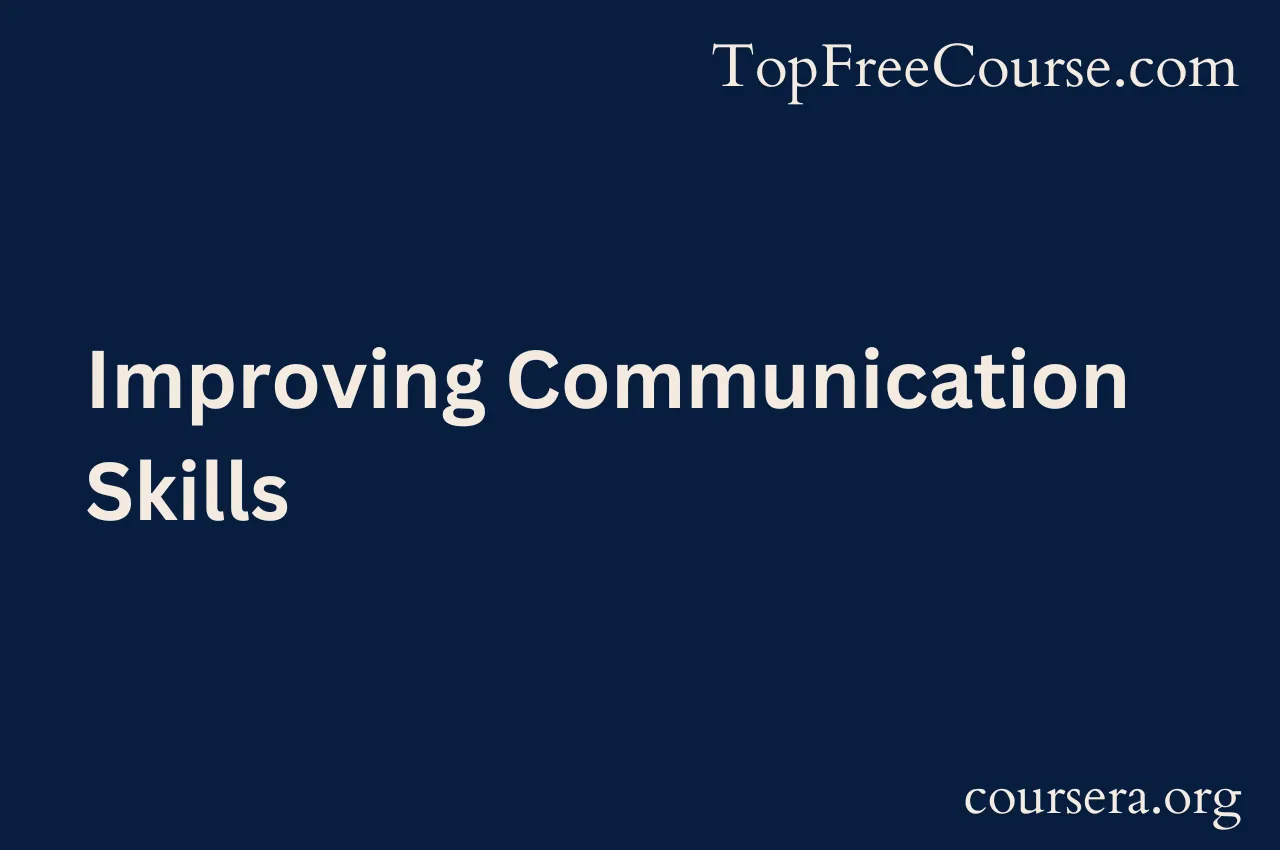What Will You Learn?
You'll learn how to discover if someone is lying (and how to react if they are), how to develop trust, the best method of communication for negotiation, and how to apologize. You'll also learn when to cooperate and when to compete, how to create persuasive messages, ask thoughtful questions, engage in active listening, and choose the right medium (face-to-face conversation, video conference, phone call, or email) for your messages. By the end of the course, you'll be able to understand what others want, respond strategically to their wants and needs, craft convincing and clear messages, and develop the critical communication skills you need to get ahead in business and in life.
About This Course
Provider: Coursera
Format: Online
Duration: 9 hours to complete [Approx]
Target Audience: Beginners
Learning Objectives: Able to improve your communication skills after completing this free course
Course Prerequisites: NA
Assessment and Certification: NA
Instructor: University of Pennsylvania
Key Topics: Communication, Negotiation, Deception, goal setting
Topic Covered:
- - Introduction
- - The Thin Line Between Cooperation and Competition
- - The Three Principles of Cooperation and Competition
- - The Mechanics of Comparisons
- - The Misery of Upward Comparisons
- - Comparisons and Motivation
- - Comparisons and Cheating
- - Comparisons: Finding Your Balance
- - The Cooperation Challenge
- - Building Trust: Vulnerability
- - Building Trust: Rapport, Warmth, & Equality
- - Building Trust: Interdependence, Common Goals, & Common Enemies
- - Building Trust: Communication and Institutions
- - Signaling and Trust
- - Trust, Emotion, and Limited Feedback
- - Fundamental Truths about Deception
- - The Challenge of Lie Detection
- - Cues to Detect Deception
- - Matching the Content and Context
- - Practical Steps
- - Nature of Violations
- - Learning from Bad Apologies
- - The Apology Formula
- - Preparing the Apology
- - Conveying Ideas
- - Make Messages Memorable
- - Asking Questions
- - A Deeper Look at Questions
- - Active Listening
- - Nonverbal Communication
- - Communication Media
- - Threats
- - The Benefits of Goals
- - Goal Setting Pitfalls
- - Making the Most of Goal Setting
- - Crossing the Finish Line
- - Course Conclusion

0 Comments